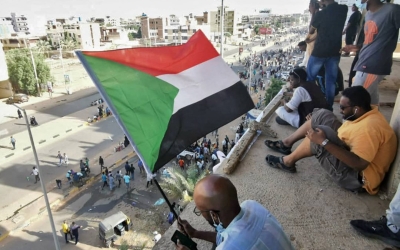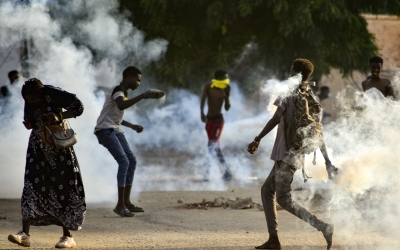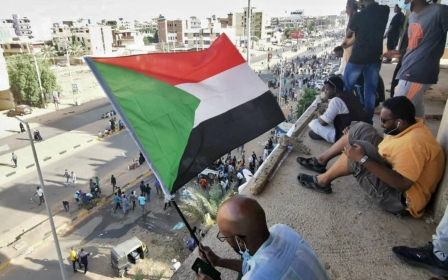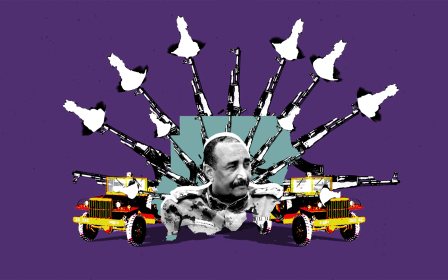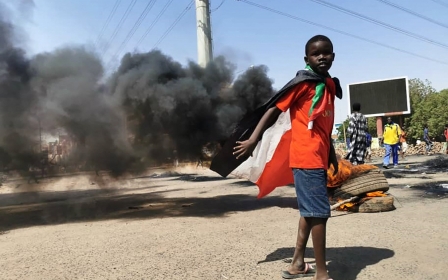Sudan coup: Protest strike after nationwide demonstrations
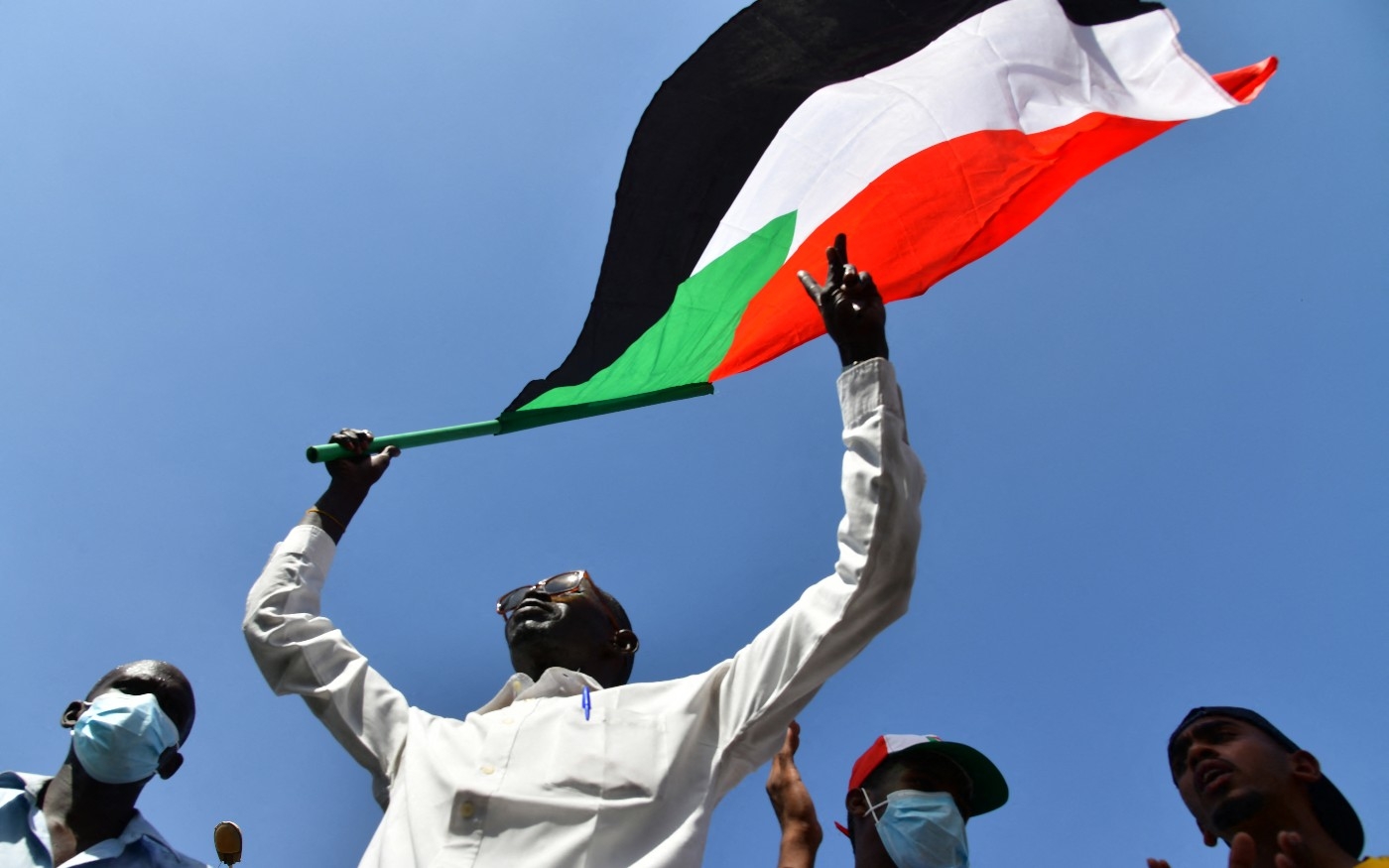
Sudanese anti-coup protesters were manning barricades in the capital Khartoum on Sunday, a day after a deadly crackdown on mass rallies, as a defiant civil disobedience campaign against the military takeover entered its seventh day.
Tens of thousands turned out across Sudan for Saturday's "march of millions" demonstrations against top military officer General Abdel Fattah al-Burhan, who dissolved the government, declared a state of emergency and detained Sudan's civilian leadership on Monday.
At least three people were shot dead and more than 100 people wounded during Saturday's demonstrations, according to medics, who reported that those killed had bullet wounds in their head, chest or stomach.
With Saturday's deaths, the number of protesters killed by security forces this week climbed to at least 14, according to a Reuters count.
However, one senior US official told AFP they estimate that 20 to 30 people have died.
More than 100 people were also wounded on Saturday, some suffering breathing difficulties from tear gas, the independent Central Committee of Sudan's Doctors said.
Police forces have denied the killings, or using live bullets, in contradiction to eyewitness accounts.
Sudan had been ruled since August 2019 by the joint civilian-military Transitional Sovereign Council, alongside Prime Minister Abdalla Hamdok's government, as part of the now derailed transition to full civilian rule following the removal of longtime ruler Omar al-Bashir.
Hamdok and other top leaders have been under military guard since the takeover, either in detention or effective house arrest.
The power grab sparked international condemnation, with world powers demanding a swift return to civilian rule and calling for the military to show "restraint" against protesters.
US President Joe Biden has called the coup a "grave setback", while the African Union has suspended Sudan's membership for the "unconstitutional" takeover.
The World Bank and the United States froze aid, which will hit hard in a country already mired in a dire economic crisis.
But Burhan, who became de facto leader after Bashir was deposed in 2019 following huge youth-led protests, has insisted the military takeover was "not a coup" but an attempt to "rectify the course of the Sudanese transition".
Protest strike
As night fell on Saturday, many protests in Khartoum and the capital's twin city of Omdurman thinned out. But on Sunday morning protesters were back on the streets, again using rocks and tyres to block roads.
Shops remain largely shut in the capital, where many government employees are refusing to work as part of a nationwide protest campaign.
"You can't do anything - everything is shut down," said a fruit-and-vegetable seller in the city centre.
Soldiers from the army and the much-feared paramilitary Rapid Support Forces, formerly known as the Janjaweed, were seen on many streets in Khartoum and Omdurman.
People were unable to cross into Khartoum from Omdurman and the capital's other twin city, Khartoum North because security forces had closed the Nile river bridges.
Forces also set up random checkpoints on the streets, frisking passers-by and randomly searching cars.
Phone lines, which were largely down on Saturday yet again, were back apart from intermittent disruptions. But internet access has remained largely cut off since the army's takeover.
Unions of doctors, bankers, teachers and other groups have been on strike since last week and have said they will continue until demands are met, while resistance committees have barricaded neighbourhoods and created schedules of protests.
Demands range from a return to the pre-coup power-sharing arrangement to criminal charges against coup leaders.
The Sudanese Lawyers Union condemned the arrests of activists and political leaders. The union "warns that the Sudanese people are in front of an oppressive military movement paving the way for dark totalitarianism".
Calls for mediation
A senior UN official discussed mediation options and possible next steps for Sudan with its ousted prime minister on Sunday.
"We discussed options for mediation and the way forward for Sudan. I will continue these efforts with other Sudanese stakeholders," Volker Perthes, the UN Special Representative for Sudan, said in a Twitter post.
Perthes said Hamdok was "at his residence where he remains well but under house arrest".
Mediation efforts by the international community and within Sudan had been announced before Saturday's protests, with no outcome reported.
Burhan was a general under Bashir's three decades of iron-fisted rule, and analysts said the coup aimed to maintain the army's traditional control over the northeast African country.
Hamdok has demanded the release of detainees and a return to the pre-coup power-sharing arrangement, sources close to him said. One of several sources of tension had been a push by civilians to take over leadership of the transition from the military at a not-yet-agreed point in the coming months.
Middle East Eye delivers independent and unrivalled coverage and analysis of the Middle East, North Africa and beyond. To learn more about republishing this content and the associated fees, please fill out this form. More about MEE can be found here.


